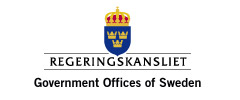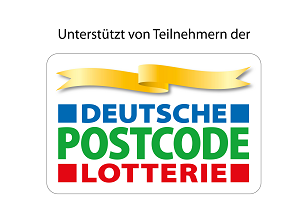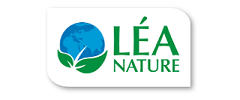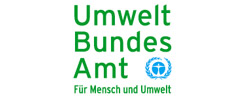Access to Safe Sanitation –
a Right for all EU citizens
High-Level Policy Dialogue on EU Sanitation Policies and Practices in Brussels - New EU Documentary
29.01.2008 |Chantal van den Bossche

European Women’s organization WECF put safe and affordable sustainable sanitation on the EU political agenda during High-Level Policy Dialogue on EU Sanitation Policies and Practices in Brussels today.
A lack of safe sanitary facilities, causing water pollution and disease is still a daily practice for 20 to 23 million Europeans within the European Union. In some EU member states almost 40% of the population do not have access to safe sanitation. Today’s policy dialogue in Brussels was therefore intended to put safe and affordable sustainable sanitation on the top of the European political agenda at the beginning of the International Year of Sanitation.
The event organised in co-operation with Global Water Partnership, the European Water Partnership, Coalition Clean Baltic and KIWA Research was to raise awareness and to galvanize political will within the European Union on the safe management of wastewater for small rural settlements in the EU. The policy dialogue brought together representatives from different organisations, such as the EU Commission on Environment, scientific institutes on ecological sanitation, the World Health Organization (WHO), the World Bank, and Ministries on Environment, Health and Agriculture from the old and new member states.

No priority
The event was chaired by Dr. Ushi Eid, member of the German Bundestag and Vice-Chair of the United Nations Secretary-General’s Advisory Board on Water and Sanitation (UNSGAB), and by Dr. Friedrich Barth, vice-chairman of the European Water Partnership (EWP). Mrs. Eid opened the dialogue by stating that sanitation is not only a public health issue: “It is also a social investment; access to safe sanitation also leads to a reduction of poverty and a reduction in the lack of education. It’s crucial investment and not only an investment in people; it is an investment in the environment as well”.
Unfortunately safe sanitation has not been a priority of EU policy makers so far. Ushi Eid: “DG Water focuses on distribution of proper drinking water, DG Sanco focuses on the health risks, and DG Environment focuses on the environmental risks of polluted ground water. A clear water management with clear links between health ministries, environmental ministries and agricultural ministries is urgently needed.”

Political Agenda
WECF director Sascha Gabizon is glad that sanitation is on the political agenda, because of the International Year of Sanitation, but states at the same time: “The EU should do much more for its most needing citizens. It is not acceptable that we spend 336 billion of Euro from cohesion funds, without addressing one of the biggest public health problems for poor people in rural areas, that of a lack of safe sanitation”. Eddy Hartog of DG Regional Policy of the European Commission stated that the cohesion funds are huge indeed, but added that there is a need for specific programs on sanitation for small settlements in the new member states.
According to WECF this is a step in the right direction. Sascha Gabizon “In some EU member states almost 40% of the population do not have access to safe sanitation. More than 20 million Europeans depend on unsafe sanitation such as pit latrines, soak away pits and drains. In many regions faecal bacteria and nitrates from pit latrines, infiltrate the drinking water from wells. It results in high morbidity, especially among children, and a high number of people affected by water related diseases and water pollution. With 428 million Euros this problem could be solved completely”.

Millennium Development Goals in the EU
Safe and affordable sanitation for all citizens of the European Union should be a key priority, according to WECF. The European Union should work together with NGO’s, charitable funds and governments in setting the priorities for reaching the Millennium Development Goals on Sanitation, also in the European Union. Sascha Gabizon: “Additional funding and efforts are needed to achieve that by 2015, all the 20 million people currently using unsafe latrines, have been provided with sustainable, affordable and safe solutions. It should be a priority of the European Union to first help those who are most needing. Additional funding will only become available if providing sanitation in rural areas becomes a binding obligation in the EU water directives. The European Commission should extend the directives to smaller rural communities, based on the example of the Baltic Sea agreement on reducing nutrient load from individual households”.
Affordable and sustainable approaches
New affordable and sustainable approaches towards sanitation are needed in the EU. In many rural settlements inhabitants have difficulties feeding their families. Sanitation is therefore, understandably, not a priority. Especially as the common alternative in richer parts of the world, a central sewage system, is very expensive. WECF sanitation coordinator Margriet Samwel states: “Affordable, safe and sustainable sanitation alternatives do exist. WECF and its Bulgarian and Romanian members build ecological demonstration toilets. These dry toilet facilities separate the urine and sanitize the faecal. This is one of a number of modern low cost approaches, which provide an immediate solution to the health and environmental problems related to sanitation in rural areas in Eastern Europe”. Roger Aertgeerts, director of the WHO focussed in his speech on human dignity and how safe sanitation can help combating health risks and environmental risks, especially in the light of climate change.
Launch of EU Sanitation Documentary “Access to safe sanitation – a right for EU citizens”
The event also saw the premiere of the 7 minute documentary “Access to safe sanitation – a right for EU citizens”, produced by WECF with Earth Forever Bulgaria and Rapsode France.This films not only shows current sanitation problems in the EU and policy changes, but also how modern low cost approaches can provide an immediate solution to the health and environmental problems related to sanitation in rural areas in Eastern Europe.
The documentary can also be found on the alternative channel web site. You can also download the movie (also with a dutch voice-over).
In addition Alternative Channel has put together a short video of the event (in french).
Right to safe and affordable sanitation
The right to safe and affordable water and sanitation is one of the main missions of WECF, Women in Europe for a Common Future. WECF is a network of more than 80 organisations in 30 countries. They mobilize women to find affordable solutions to the environmental health problems in their communities and encourage women to participate in decision-making.
For more information please contact
Ms. Sascha Gabizon, Executive Director WECF, +49-172 86 37 586
Ms. Chantal van den Bossche, NL press officer +31-6 2812 9992, chantal.vandenbossche(at)wecf.eu
Ms. Johanna Hausmann, DE press officer + 49 89 232393819, Johanna.hausmann(at)wecf.eu
Women in Europe, +31 30 2310300, wecf(at)wecf.eu
Related News
Together for sustainable sanitation and water security worldwide!
Stockholm, 26-31 Aug 2018: WECF participated in the World Water Week 2018 to further support the worldwide implementation of SDG 6
01.09.2018
Successful first action against algae overgrowth in the Blue Lake in Ukraine
Using fish to fight the overgrowth of algae
18.12.2017
English summary of WECF publication on pesticides in surface waters in Dutch province Drenthe
For our non Dutch readers we now publish an English summary of the publication about pesticide pollution in the surface waters of Drenthe
09.11.2017
WECF participated at WASH symposium in Uganda
From June 20th-23rd, a WASH symposium was held in Kampala, Uganda. WECF participated in cooperation with our local partner organization ARUWE and we presented our water, sanitation and energy projects in Uganda.
23.06.2016
We've made it - overwhelming success of our crowdfunding campaign!
In the last 4 weeks we run a crowdfunding campaign to collect 4.000€ to finance 15 Biogas Toilets for deprived families in Uganda. Thanks to your great support we can now build even more!
22.06.2016







































